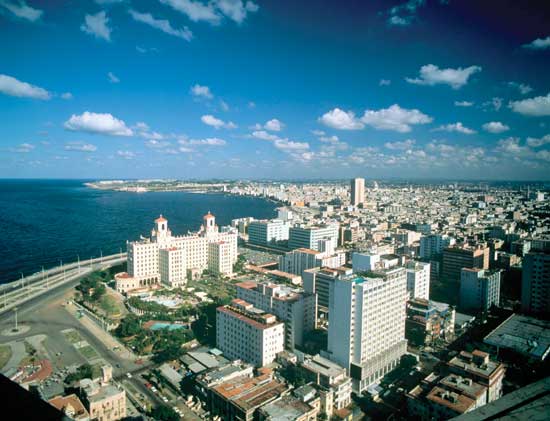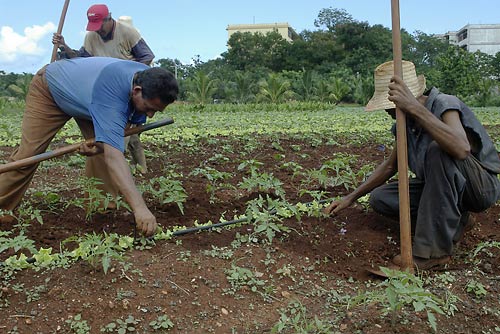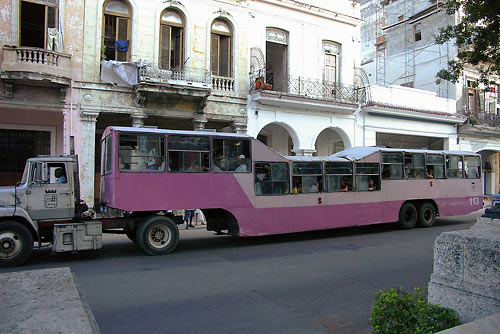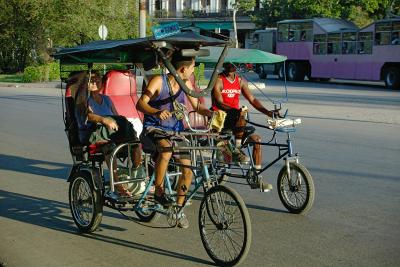RESISTANCE CINEMA Presents “THE POWER OF COMMUNITY: HOW CUBA SURVIVED PEAK OIL” Arthur Morgan Institute for Community Solutions, Written and Produced by Faith Morgan, pat Murphy, and Megan Quinn Bachman, 2006, 53 minutes
WHEN: Sunday August 9th, 2009 1:15pm
WHERE: Community Church NYC, Gallery Room, 28 East 35th st. @ park ave.
ADMISSION: Free; donations appreciated
 When the Soviet Union collapsed in 1990, Cuba's economy went into a tailspin. With imports of oil cut by more than half – and food by 80 percent – people were desperate. This film tells of the hardships and struggles as well as the community and creativity of the Cuban people during this difficult time. Cubans share how they transitioned from a highly mechanized, industrial agricultural system to one using organic methods of farming and local, urban gardens. The film opens with a short history of Peak Oil, a term for the time in our history when world oil production will reach its all-time peak and begin to decline forever. Cuba, the only country that has faced such a crisis – the massive reduction of fossil fuels – is an example of options and hope.
When the Soviet Union collapsed in 1990, Cuba's economy went into a tailspin. With imports of oil cut by more than half – and food by 80 percent – people were desperate. This film tells of the hardships and struggles as well as the community and creativity of the Cuban people during this difficult time. Cubans share how they transitioned from a highly mechanized, industrial agricultural system to one using organic methods of farming and local, urban gardens. The film opens with a short history of Peak Oil, a term for the time in our history when world oil production will reach its all-time peak and begin to decline forever. Cuba, the only country that has faced such a crisis – the massive reduction of fossil fuels – is an example of options and hope.
 This need to bring agriculture into the city began with the fall of the Soviet Union and the loss of more than 50 percent of Cuba's oil imports, much of its food and 85 percent of its trade economy. Transportation halted, people went hungry and the average Cuban lost 30 pounds. The era in Cuba following the Soviet collapse is known to Cubans as the Special Period. Cuba lost 80 percent of its export market and its imports fell by 80 percent. The Gross Domestic Product dropped by more than one third.
This need to bring agriculture into the city began with the fall of the Soviet Union and the loss of more than 50 percent of Cuba's oil imports, much of its food and 85 percent of its trade economy. Transportation halted, people went hungry and the average Cuban lost 30 pounds. The era in Cuba following the Soviet collapse is known to Cubans as the Special Period. Cuba lost 80 percent of its export market and its imports fell by 80 percent. The Gross Domestic Product dropped by more than one third.
 At the Organipónico de Alamar, a neighborhood agriculture project, a workers' collective runs a large urban farm,
At the Organipónico de Alamar, a neighborhood agriculture project, a workers' collective runs a large urban farm, a produce market and a restaurant. Hand tools and human labor replace oil-driven machinery. Worm cultivation and composting create productive soil. Drip irrigation conserves water, and the diverse, multi-hued produce provides the community with a rainbow of healthy foods.
a produce market and a restaurant. Hand tools and human labor replace oil-driven machinery. Worm cultivation and composting create productive soil. Drip irrigation conserves water, and the diverse, multi-hued produce provides the community with a rainbow of healthy foods.
 In other Havana neighborhoods, lacking enough land for such large projects, residents have installed raised garden beds on parking lots and planted vegetable gardens on their patios and rooftops. Since the early 1990s, an urban agriculture movement has swept through Cuba, putting this capital city of 2.2 million on a path toward sustainability. In an inventive approach to solve the problem of transportaion, virtually every form of vehicle, large and small, was used to re design a mass transit system. Commuters ride in hand-made wheelbarrows, buses, other motorized transport and animal-powered vehicles.
In other Havana neighborhoods, lacking enough land for such large projects, residents have installed raised garden beds on parking lots and planted vegetable gardens on their patios and rooftops. Since the early 1990s, an urban agriculture movement has swept through Cuba, putting this capital city of 2.2 million on a path toward sustainability. In an inventive approach to solve the problem of transportaion, virtually every form of vehicle, large and small, was used to re design a mass transit system. Commuters ride in hand-made wheelbarrows, buses, other motorized transport and animal-powered vehicles.
"The sun was enough to maintain life on earth for millions of years,……. Only when we [humans] arrived and changed the way we use energy was the sun not enough. So the problem is with our society, not with the world of energy…… There is climate change, the price of oil, the crisis of energy …… What we must know is that the world is changing and we must change the way we see the world." Bruno Beres, a director of Cuba Solar